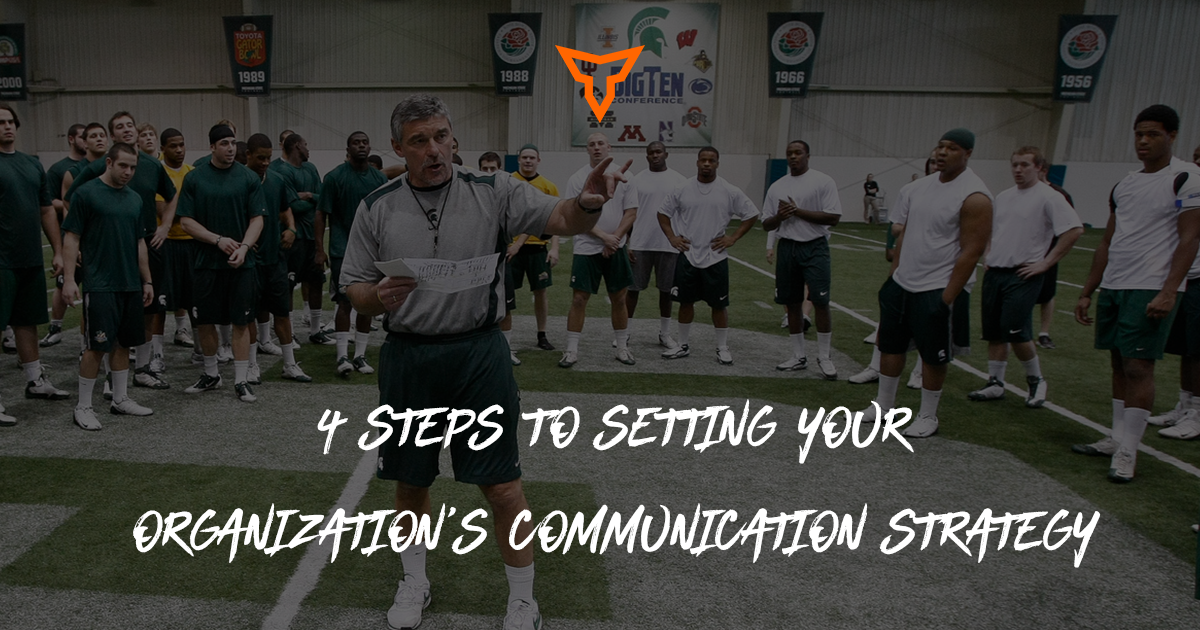Key Tips on Delegating Effectively and Entrusting your Staff
Many high-performance managers feel overwhelmed by the deluge of daily obligations that inundate their lives. The unique role of the high-performance program and manager, positioned on the organizational flow chart between the sports and assistant coaches, administration, and athletes allows for a centralized sphere of influence and problem-solving capability.
The engaged manager can feel overwhelmed by the sheer number of problems and tasks that reach their desk through the communication platforms available today. These platforms, such as email, text, group chat, phone, video call, athlete management, and HIPAA/FERPA compliant systems, often overtake a manager’s bandwidth for productive work.
Perhaps you are in this situation, and perhaps it has been exacerbated by the current climate and reliance, or over-reliance, upon technology to increase productivity. You are not alone and in recent years, this topic has been explored in many self-help books and even by some strength and conditioning coaches such as Ron McKeefery, in his book CEO Strength Coach.
The purpose of this article is to return your focus to a tried and true method for increasing the team’s productivity while fostering the necessary environment for achieving desirable results THROUGH people using sufficient and well-suited resources.
In business, they call this delegation. Oftentimes, high-performance managers view delegation as an abdication of duty. Far from it. Effective delegation is a primary methodology in the engagement, empowerment, and development of a high-performance staff. The effective delegation of appropriate projects, tasks, or functions (multiple tasks) advances the level of trust between leadership and staff.
More simply, to get trust, you must first give trust, and delegation is one way to do so.
As coaches, managers, and/or leaders we are expected to be problem solvers and decision-makers. However, problem solvers and decision-makers are needed at all levels within the organizational and departmental flow chart and effective leadership should support staff members in making decisions for themselves within the framework of the stated mission, vision, values, and outcome goals.
Delegating With a Plan
Many might view delegation as the simple assignment of tasks. Much like a training prescription, a simple list of activities to be completed. As coaches, we know there is much more to a training prescription than the words on the page. There is the person. The same applies to delegating tasks and assignments to staff.
Here are some tips to consider as you plan to delegate:
- Leaders should take the time to learn about their employees; find out their interests, their capabilities, interpersonal skills, and their bandwidth for additional work. You need to talk to your employees; DO NOT assume they will come to you!
- Generate a list of projects, tasks, or functions that would be beneficial to delegate. Avoid dumping trash or tedious work onto subordinates; I can’t think of a better way to lose trust, motivation, and commitment to the team’s goals.
- When possible, choose creative or highly visible projects that get the departmental capabilities noticed by the organization. When a staff member produces something impactful, let them present the project to organizational and departmental leadership; it creates value. Develop a plan for this process.
- Finally, if specific criteria need to be met for the completion of a project, write them down. Include what you want to be done and when and how the result will be evaluated. Ambiguity will only lead to frustration and a disappointing experience.
Ensuring Success
Once you have taken the time to connect with each of your employees, as well as generate a suitable list of projects, tasks, of functions, it is time to begin the process of delegating the assignments to the appropriate staff member(s). Finding the right person, or people, for the job is a matter of utilizing the information collected in the planning process.
Staff members should be selected based upon the following:
- Any staff member who has expressed a desire for development, asked for a new challenge, or shown initiative on other projects, might be an ideal fit.
- Consider the tenure of any staff member that you wish to take on a project. Remember, that new staff members are getting to know you, the department, and the organization and might not be comfortable taking on new challenges until they are comfortable with their core job responsibilities.
- Spread the wealth. Do not delegate to the same few people or singular person each time. When doing so you risk employee burnout or issues with favoritism amongst other staff members who might be putting forth substantial effort in other areas.
- Lastly, to make the best use of complementary skills and knowledge explore the possibility of dividing the task between multiple staff members - forming a diverse task force or working group.
Upon matching the right staff member(s) to the assignment approach them with a proposal rather than an order.
Allow them to accept or deny the assignment based upon their desires, goals, time constraints, or other personal influences. Then, should they accept, give them the authority and support to see it through. Clear and open communication accompanied by your trust are pivotal factors in the successful completion of the assignment.
Some key elements of communication include:
- Provide your previously developed criteria for successful completion of the project, task, or function and explain how it fits into the greater mission, vision, values, and goals of the department.
- Review any deadlines for completion.
- Define the resources that will be made available including human, physical, financial, and intellectual resources, should any/all apply.
- Discuss any additional training that might be necessary to ensure timely and successful completion.
- Finally, agree on a date for a debrief or review.
Your job, and it is essential, is to ensure that those you support do not fail!
Review
As stated previously, assignments should be used as opportunities for engagement, empowerment, and development of a high-performance staff. And here’s the key - for both your staff AND for you!
Upon completion of the assignment, it is vital for all key stakeholders in the project, task, or function to review the consequential successes, failures, and bottlenecks.
In addition to the probing questions of the assignment be sure to:
- Recognize the achievements of those involved! Do so in a public way and provide positive reinforcement for a job well done. If possible, support those achievements financially.
- Use this experience to support continued growth, ongoing coaching, or additional training as needed or requested.
- When appropriate, begin thinking about future ways in which you can re-engage, develop, or promote those involved.
Entrusting your staff members to tackle projects can be an incredible feeling and oftentimes, open up your other skills as a leader, mentor, or educator. But there are certain tasks that you should not delegate.
Here are some examples of tasks in which you should retain responsibility:
- Planning, directing, and motivating your people. This includes hiring, firing, payroll, career development, performance evaluations, and other personnel decisions.
- Complicated negotiations and proposals.
- Tasks that require your specific skill set or those that are unique to your position.
If you can sharpen your delegating skill set, let go of the “I like having things done my way” impediment, and exude confidence in your staff, your work life will be changed forever.
Imagine for a moment, a world where your inbox isn’t at capacity, you’re not up at 4:00am to meet a deadline, your staff morale is high, your turnover is low, and the productivity of your high-performance department reaches new heights.
Delegating is a show of trust, it provides employees experience and aids in their development - and developing people is part of your job.
Bibliography
Manager's Tool Kit: The 13 Skills Managers Need To Succeed. (Harvard Business Essentials, Compiler). (2004). Harvard Business School Press. 2/20/21
Wren, D. A. (2005). A History of Management Thought (5th ed.). John Wiley & Sons, Inc. 2/18/21
Subscribe to our blog
Subscribe to receive the latest blog posts to your inbox every week.
Related posts

5 Steps To Create a System For Staff Development

Psychology Principles You Should Be Utilizing



